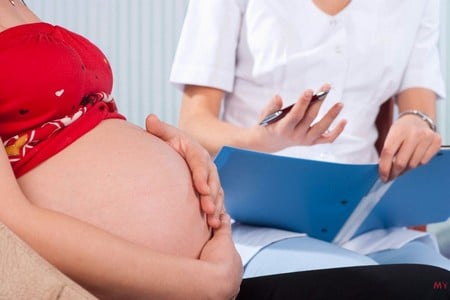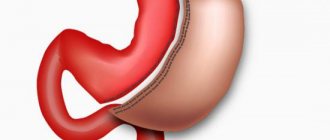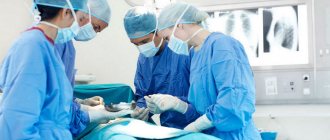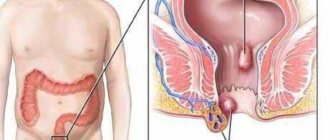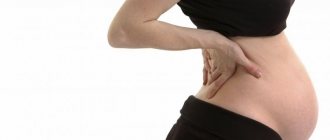Planning a pregnancy
If there are hemorrhoids and a woman is planning a pregnancy, it would be advisable to consult a proctologist who will prescribe treatment to strengthen blood vessels.
It is much easier to cure the disease before pregnancy, since there are no restrictions on taking effective medications.
Childbirth with stage 3 hemorrhoids is especially difficult and dangerous, and in this case the doctor may prescribe surgical intervention. This procedure will make bearing the child and the birth itself easier.
Prevention during the postpartum period
As a preventive measure, women in labor are advised to balance their diet in such a way as not to harm either themselves or the baby. Based on capabilities and health status, increase mobility: frequent walks, gentle exercise and swimming (after consultation with a doctor). You should also avoid prolonged periods in a sitting or static position and perform special exercises to strengthen the pelvic muscles and vaginal muscles. In any case, you cannot take any measures without consulting a doctor.
Is it dangerous to give birth with hemorrhoids?
At the time of natural childbirth, there is a significant increase in pressure in the pelvic area. When the baby moves along the canal, the veins are compressed, pinched, blood is retained in them, and the hemorrhoids enlarge.
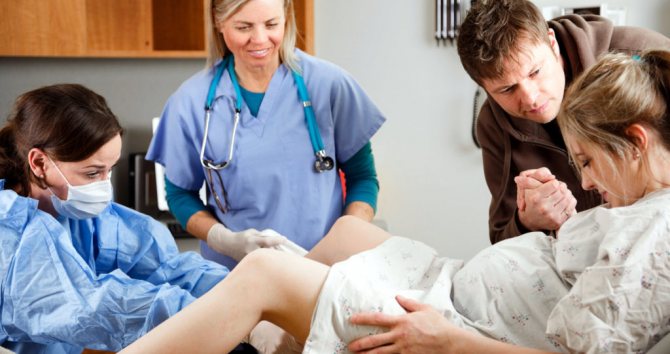
Due to pressure, the mucous membrane of the rectum can be damaged in a woman in labor, and sometimes cracks appear in the anus area after childbirth.
Therefore, hemorrhoids in women who have given birth can worsen significantly and reach a more dangerous stage.
Main features
Let's look at the main symptoms of the disease. These include the following:
- Discomfort appears in the anal area. It is expressed by sensations of burning and itching.
- When constipation occurs, cracks in the anus may occur. They will make themselves felt by the same itching and pain during bowel movements.
- The appearance of blood in the stool or bloody marks on paper. And if the disease is advanced, the discharge can be significant.
- If the hemorrhoids are enlarged and come out, then pain is possible even in a normal sitting position. The nodes can be easily felt by palpation. And at the initial stage you can even straighten them yourself. With the further development of the disease, this will not be possible.
- The most important symptom of hemorrhoids is pain in the anus. They are especially intensified during bowel movements. And sometimes they are very strong.
You should tell your gynecologist who is caring for your pregnancy that you have hemorrhoids. In many cases, the doctor himself sees the problem during a standard examination in a gynecological chair. The first recommendations will be from him - whether you need to go to a proctologist (it definitely won’t be superfluous), how to eat, whether physical therapy is needed, whether to treat the disease with medication. If you follow the doctor’s instructions, you can correct the situation perfectly.
Among the doctor’s main recommendations for pregnant women with hemorrhoids:
- Make sure you have regular bowel movements and avoid constipation. They are the ones who provoke hemorrhoidal disease. There are other factors, but systematic constipation leaves almost no chance.
- Move around and don't sit for a long time. Do not allow stagnation in the pelvic area. Of course, if other circumstances of pregnancy force you to lie down, there can be no physical activity. But if there are no prohibitions, fight physical inactivity.
- Visit the pool whenever possible. This is very useful, and not only from the point of view of treating hemorrhoids. Water aerobics for pregnant women works wonders - they say that such active mothers have an easier birth.
- Control your diet. Drink a lot, avoid those foods that lead to possible digestive problems.
Is it possible to give birth with hemorrhoids? Your doctor will give you the exact answer: he sees the stage of the disease, the presence/absence of complications, can estimate the frequency of exacerbations, etc. The doctor can predict how your hemorrhoids will “behave” during childbirth. In most cases, the disease does not interfere with natural delivery.
Causes
It is not a fact that after removal of hemorrhoids, the disease will not manifest itself again during pregnancy.
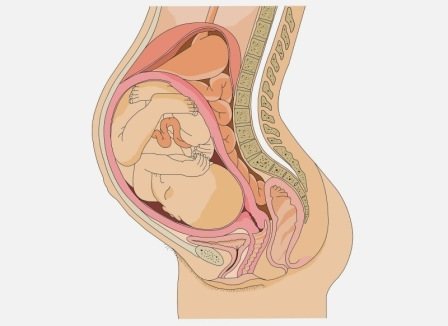
Exacerbation of hemorrhoids during pregnancy is due to the following factors:
- Over time, the growing uterus compresses the blood vessels in the pelvic area and aggravates the course of the disease.
- Changed hormonal levels affect the elasticity of muscles and blood vessels. They relax and stretch, which contributes to the appearance of knots. Due to a sedentary lifestyle, the nodes fill with blood.
- Relaxed muscles in the pelvic area provoke frequent constipation. A woman has to strain during bowel movements, and the hemorrhoids enlarge.
Childbirth with hemorrhoids
In a girl who is giving birth, the pressure increases, the muscles tense to the maximum, and the veins of the small pelvis are compressed. When a woman carrying a child suffers from hemorrhoids, there is a high probability that it will worsen during childbirth. With such a disease, it is not prohibited to give birth, but you should follow some recommendations and be under the supervision of a doctor.
The process of giving birth to a child is quite painful. Hemorrhoids will only greatly complicate this process. When a girl pushes, the pressure inside the small pelvis increases, which can lead to not only an increase in the hemorrhoids, but also their rupture. There is a way out of this situation.
Prevention and treatment
If hemorrhoids appear during pregnancy, you should immediately consult a specialist.
An expectant mother who wants to give birth independently naturally with hemorrhoids without consequences should take a comprehensive approach to solving the problem.
During this period, a woman is limited in treatment options, since many medications are strictly prohibited for pregnant women, including some laxatives.
The easiest way to deal with external hemorrhoids. It can be regularly monitored using the following folk remedies:
- Warm infusion of nettle, dandelion or chamomile for washing.
- Grated potatoes and beets, herbal decoctions for compresses and lotions.
- Sea buckthorn candles and oil.
- Aloe juice or heated burdock oil.
The last point is especially suitable for stage 2 hemorrhoids, when the nodes bleed.
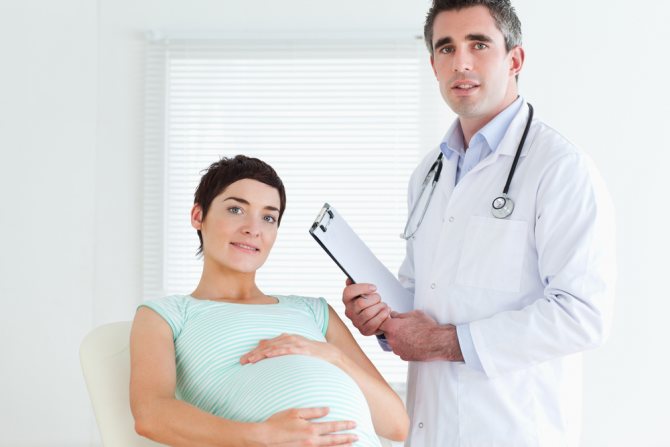
For any inflammation in the anal area, you should immediately consult a proctologist. He will tell the expectant mother how to carry and give birth with hemorrhoids, and select an individual course of medications.
The doctor can prescribe harmless suppositories that will relieve pain and make bowel movements easier. A woman will have an increased chance of giving birth with hemorrhoids without negative consequences if she sticks to a diet, eats more foods with fiber, watches her bowel movements, and does not give up an active lifestyle, walking and exercise.
The knee-elbow position will help to avoid exacerbation of the disease. It helps unload the venous system in the pelvis.
Is hemorrhoids an indication for cesarean section?
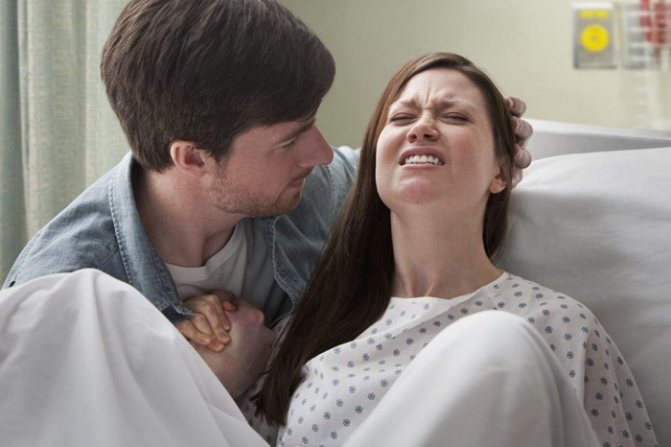
The indication for cesarean section for hemorrhoids in the initial stages is not mandatory. Natural labor attempts and the movement of the fetus along the birth canal increase intra-abdominal pressure, straining the abdominal muscles and squeezing the intestinal veins. Hemorrhoids complicate childbirth, increase its pain and duration. Despite such a complex birth process, natural delivery is safe for the baby and contributes to the rapid rehabilitation of the woman in labor.
If severe complications develop, a cesarean section for hemorrhoids is mandatory. The main indication for its use is grade 4 hemorrhoids. Natural childbirth at this stage of the disease is dangerous, because during labor, the nodes, overflowing with blood from high pressure, rupture and bleed profusely. Rapid contraction of the anal muscles provokes compression of the nodes and their prolapse outward.
Abdominal surgery is performed if the following signs of illness are present:
- blockage of nodes;
- the presence of pathogenic bacteria and fungi;
- prolonged and heavy bleeding;
- necrosis of tissues of the gastrointestinal tract.
The use of cesarean section for hemorrhoids:
- prevents increased pressure during childbirth on internal organs and blood vessels;
- prevents the worsening of the pathological condition;
- prevents blood stagnation.
Natural birth or caesarean?
Traditional medicine recommends giving birth naturally. Until now, this method has been recognized as the best for the child’s health.
Experts say that you can give birth with hemorrhoids if the disease is not advanced to stage 4 and is not complicated by thrombosis or bleeding.
Therefore, it is better for the expectant mother to calmly and responsibly follow the doctor’s recommendations.
Sometimes hemorrhoids appear after natural childbirth in women who were completely healthy. In this case, it is much easier to treat the problem - the choice of medications and procedures is significantly expanded.
According to indications, after childbirth you can resort to surgical intervention.
What to do during childbirth
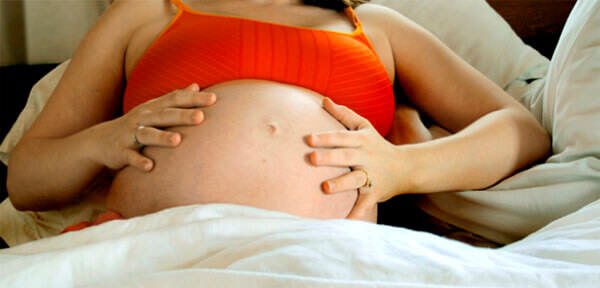
Some women leave reviews online, where they share their feelings from the past childbirth against the background of exacerbation of hemorrhoids and give advice to expectant mothers:
- if the dilation of the veins was practically imperceptible, then the process of giving birth to a child will lead to a worsening of the condition;
- you should mentally and physically prepare yourself for a more protracted and painful process;
- it is possible and advisable to establish contact with an obstetrician in advance and prepare for various manipulations if hemorrhoids cause complications during childbirth;
- you need to think not about hemorrhoids during childbirth, but about the child, and you can survive troubles with this disease;
- be observed and treated radically after childbirth and breastfeeding to avoid a recurrence of a similar situation in the future.
Most women want to give birth on their own and not have a cesarean section unless there are other contraindications to a natural birth.
To avoid an unpleasant situation, it is advisable to visit a proctologist when planning a pregnancy if the symptoms of hemorrhoids have already made themselves felt or there is a hereditary burden of varicose veins.
During pregnancy, it is also worth seeing this specialist. But the range of medical assistance will already be limited, especially in the first trimester.
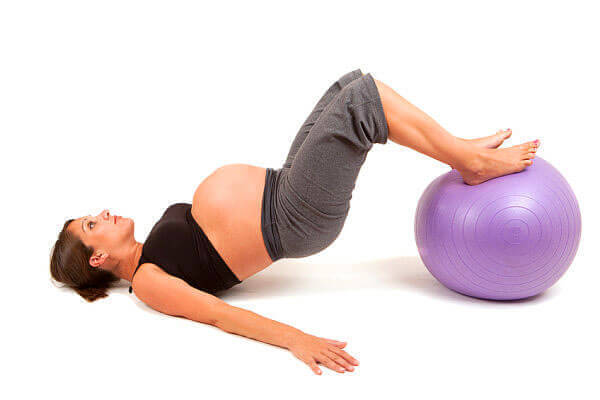
Special exercises will help during labor
The question of whether it is possible to give birth naturally or to undergo surgery is decided by the proctologist together with the gynecologist in agreement with the woman’s opinion. The dilatation of the veins of the rectal plexus itself is not a contraindication for independent delivery. In most cases, hemorrhoids and childbirth are not contraindicated.
Caesarean section is performed for women with stage 4 hemorrhoids and the development of complications such as thrombosis, necrosis or bleeding.
Why can a pregnant woman get hemorrhoids?
Women who are about to become mothers are very often diagnosed with hemorrhoids. Even if the expectant mother has never had problems with hemorrhoids before, then due to physiological changes in the body during pregnancy, not a single woman is insured against hemorrhoids. Hemorrhoids before childbirth can be very dangerous for those women who had problems with congestion in the pelvic area before pregnancy. Is it possible to give birth with hemorrhoids? Doctors tell us today that there are no special restrictions on giving birth with hemorrhoids. However, if a woman has external and internal inflamed hemorrhoids, the situation becomes more complicated - it can become a barrier to easy delivery.
Childbirth with hemorrhoids can bring severe pain, discomfort, and can last much longer than normal childbirth.
Therefore, doctors recommend that pregnant women monitor their health more carefully and, at the first symptom of the development of hemorrhoids, begin to treat the disease as quickly as possible. Fortunately, today many medications have been developed that can relieve a woman of hemorrhoids without harming the unborn baby. The disease can develop during pregnancy, before childbirth, during childbirth and after childbirth. There are many reasons for the development of hemorrhoids during childbirth.
The reasons why hemorrhoids develop during childbirth, before childbirth and after childbirth are as follows:
- Delay of "chair". A woman’s incorrect daily diet can trigger the disease. Improper nutrition leads to the fact that intestinal peristalsis begins to work incorrectly, and, accordingly, fecal retention occurs. Constipation provokes stagnation of blood in the pelvic organs. By the way, during pregnancy, constipation is generally a side effect of pregnancy itself. During the period of bearing a child, a woman's progesterone increases, as a result of which fecal retention develops.
- Hemorrhoids just before childbirth very often occur due to hormonal changes that occur during pregnancy in a woman’s body. Due to the fact that there is a lot of the hormone prostegerone, the vascular tone of the pelvic organs decreases, and this, in turn, leads to excessive stretching of the veins in the pelvic organs. As a result, hemorrhoids develop.
- The next reason for the development of hemorrhoids before childbirth is an increase in the size of the uterus. The child develops in the mother's womb, becomes larger, and accordingly the uterus, increasing in size, begins to slowly put more and more pressure on the pelvic area, blood circulation in the organs is disrupted, which provokes the development of hemorrhoids. These are the physiological characteristics during pregnancy; due to changes, the outflow of blood in the vessels decreases, and this provokes the development of hemorrhoids before delivery.
- Acute hemorrhoids during childbirth usually develop due to severe overload of the body. Hemorrhoids during childbirth and after childbirth usually appear when delivery took place naturally; as a result of colossal loads on the pelvic area, internal and external hemorrhoids form. During childbirth, there is strong pressure on the veins of the pelvic organs, and this carries the risk of hemorrhoids when there are already hidden forms of internal hemorrhoids that have not manifested themselves throughout the pregnancy.
- One of the main factors in the development of hemorrhoids is a sedentary lifestyle. When a woman moves little, she runs the risk of developing hemorrhoids. This factor provokes the development of hemorrhoids in males. Most expectant mothers move little during the period of carrying a baby, citing toxicosis and physical discomfort, thereby pushing themselves to develop such an unpleasant problem as hemorrhoids
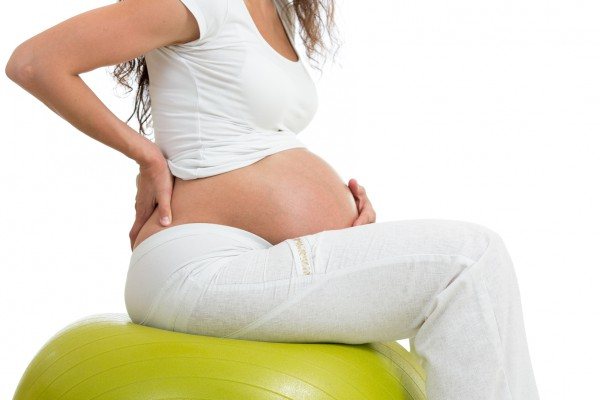
Hemorrhoids at any stage of development are not a contraindication to vaginal delivery. The only thing is that the doctor needs to monitor the process of preparation for pregnancy and childbirth.
What determines the development of the disease
During the development of the embryo, vascular formations called “corpora cavernosa” form in the anus. Hemorrhoids form when their size increases and then extends to the anus. This is how internal hemorrhoidal nodes are formed. The causes of the development of the disease during pregnancy are the following factors:
- Poor nutrition during pregnancy is dangerous because it ends in the development of chronic constipation. Intestinal dysfunction is the most common cause of hemorrhoids. They are provoked by stagnation of venous blood in the pelvic area and anal sphincter.
- Hemorrhoids during this period can also be explained by purely physiological changes in the body of the expectant mother. A woman's body must prepare for childbirth. Along with the fetus, the size of the uterus increases. It descends and begins to put pressure on the vessels located in the pelvis and on the rectum. This phenomenon is dangerous for women, as it often leads to the formation of blood clots. In addition, in combination with constipation, it causes hemorrhoids.
- The pathology is often provoked by the patient’s low mobility. Therefore, the main prevention of the disease for a pregnant woman is walking and acceptable physical activity.
- The patient can do everything that the doctor prescribed, but goes to the doctor with the complaint that the hemorrhoid has come out anyway. What is the reason? During gestation, the specific hormonal background of a woman changes - the level of progesterone increases. This hormone provokes the disease, because when it is in excess, the vessels of the pelvic veins are stretched.
- The birth itself is the reason why a woman’s hemorrhoids come out. This is due to the high load on the vascular bed of the pelvic veins during the period of delivery. This phenomenon is most dangerous for the latent form of the disease. Often the hemorrhoid is located on the inside of the anus and does not show symptoms. In this case, hemorrhoids are diagnosed during childbirth or immediately after it.
